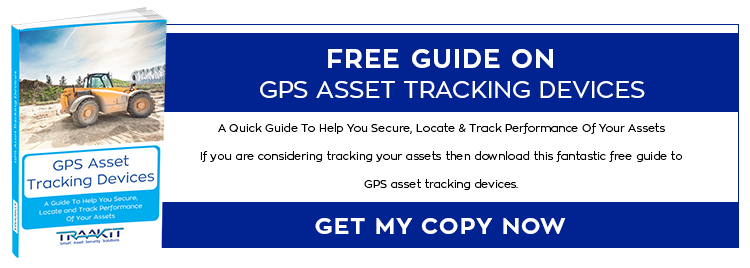![]()
The definition of an asset can be very broad and can include financial assets, stock, property, to name but a few. In this article we are concentrating on physical moveable assets.
When you think about physical assets, it's highly likely you have more than you ever realised. These things can be highly valuable and should be monitored and protected.. This is where an asset tracking system comes into play.
Asset tracking, or asset management as it is also known, is how assets are tracked through remote security devices and a system of monitoring. A system may require the scanning of barcode labels or RFID tags attached to the assets, or you may choose to use GPS devices to broadcast where they are at regular intervals.
Asset management is an important part of any business. It is important to know the status, location, usage, maintenance schedule, and other information about an organization’s assets. Asset tracking is an important part of protecting and even improving an organisation’s bottom line as well as aiding any regulatory compliance needed.
So What Sort Of Assets Might You Want To Track?
This depends on the business sector you operate in. Construction, Quarrying and Hire may have expensive plant machines, skips, loader bins and generators, Agricultural sectors may have tractors, sprayers, quad bikes, utility vehicles, telehandlers and trailers, whilst many sectors will have 4x4’s cars, vans, trucks and trailers.
Asset Tracking Methods
Tracking the types of assets described above can be time consuming and be expensive, but there are a number of asset tracking methods that are able to save you time and money, such as RFID, barcodes, VHF and GPS tracking. The aim of any asset tracking system is to make the most of the efficiency of asset control and minimising the chance of assets going missing. It's possible to track assets in real time through using mobiles, computers, and tablets. The result is increased efficiency in usage, production, planning and less downtime.
The best asset management systems also allow an organisation to schedule the maintenance and service that is needed on its assets.
Advantages Of Asset Tracking
The advantages of asset tracking are many and varied. Nearly all of the benefits contribute to a much healthier bottom line for any organisation that effectively implements a proper asset management process.
One of the benefits of asset tracking is that it enables an organisation’s records to be automatically adjusted as equipment is moved between departments or locations. The updated information can be used when costs and taxes are being calculated for every department. Other benefits include:
- Rapid and easy location of assets in real time at any time
- Use of fewer staff resources to monitor assets
- Lower administrative costs as assets don't have to be tracked manually
- Reduced asset loss
- More effective utilisation of assets
- Improved customer service through enhanced asset tracking and managerial practices
- Accountability and accuracy as far as monitoring of asset loss and management goes
- Immediate access to knowledge of asset allocations
- Better regulatory compliance in appropriate industries
- Increased efficiency and organisation of an organisation’s assets
- Better structure of physical systems
- Real-time reports on each asset's position and usage
- Increased accuracy of asset management.
Our Free Guide To GPS Asset Management Systems
Find out more about the advantages of GPS asset management in our free Guide to GPS Asset Tracking Devices. Claim your copy today by clicking here.



